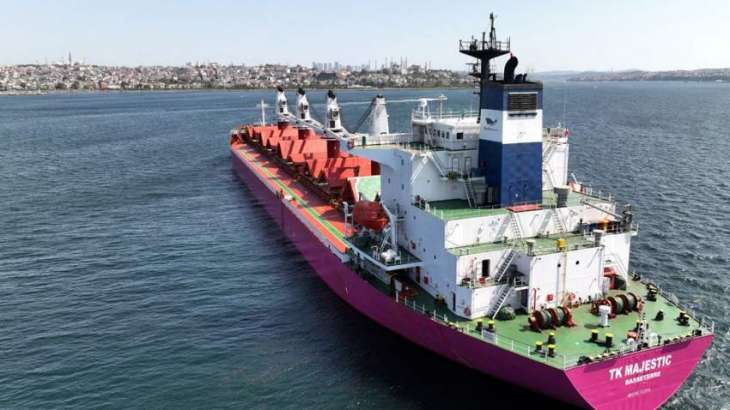US Agency for International Development (USAID) Deputy Administrator Isobel Coleman admitted on Thursday that not all grain exported from Ukraine under the UN-brokered Black Sea Initiative went directly to poor countries facing food insecurity
WASHINGTON (Pakistan Point News / Sputnik - 03rd August, 2023) US Agency for International Development (USAID) Deputy Administrator Isobel Coleman admitted on Thursday that not all grain exported from Ukraine under the UN-brokered Black Sea Initiative went directly to poor countries facing food insecurity.
Russian President Vladimir Putin said in July that a total of 32.8 million tonnes of cargo was exported from Ukraine when the Black Sea Initiative was in effect, with more than 70% going to high-income countries mainly in the European Union.
"We have to remember that all of the food exported from Ukraine serves a critical role for the world's poor, even if it doesn't go directly to food insecure areas because it calms markets and mitigates against price spikes and key commodities," Coleman said.
Russia's statements that the wealthiest countries benefited from the grain exports agreement are a lie, Coleman also said.
"In fact, nearly two-thirds of Ukraine's wheat exports through the Black Sea Grain Initiative have gone to developing countries and almost 20% have gone to the very least developed countries," she said.
However, Coleman did not explain where the rest of the Ukrainian grain exports ended up.
Putin said in July that Ethiopia, Sudan, Somalia and several other food-insecure countries accounted for less than 3% of total exports or less than 1 million tonnes. He confirmed Russia's commitment to supply grain to African countries commercially and free of charge and specifically 25,000-50,000 tonnes of grain to Burkina Faso, Mali, Eritrea and other African countries.
When asked what the United States is doing to send more than 20% of the Ukrainian grain to the poorest countries in the world, Coleman said she does not know that Washington has a specific percentage as its goal and food products are globally sourced and globally priced.
"We should not get overly focused on what percent is going to which countries," Coleman added.




